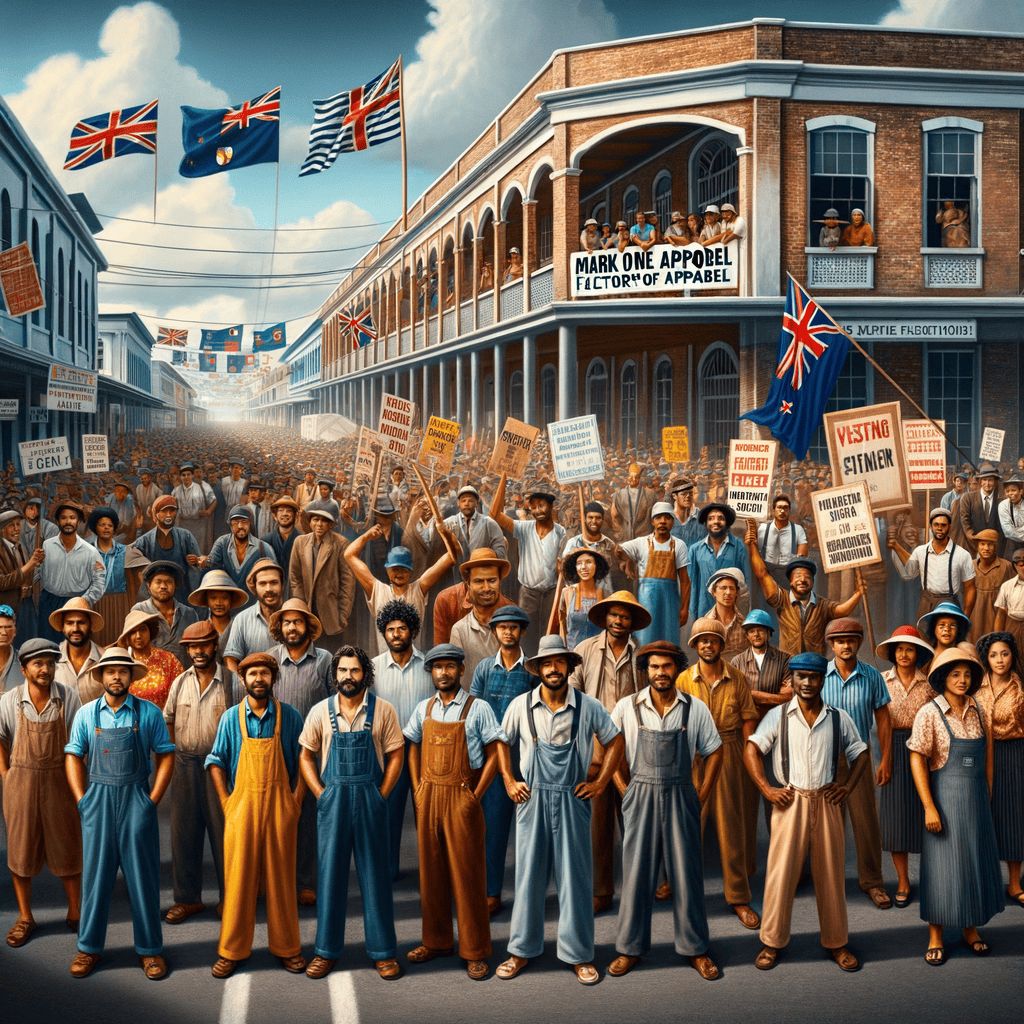On September 3, 1990, 75 employees of Mark One Apparel factory in Suva, Fiji commenced a strike in opposition to management’s unfulfilled promise of increased wages. The Fiji Times reported on the ensuing events the following day.
The striking employees, who had established a makeshift camp outside the factory, had reportedly halted work at 7.30 am soon after starting their shifts. They argued that despite achieving their production quota of 5,000 units per week, as promised in December 1989, their wage rise had not been implemented.
The protesting workers, who were earning $1 to $1.10 an hour, alleged that their salaries fluctuated week by week, making survival difficult with the rising living costs. They also stated that unlike other employees, they received no bonuses, and had no access to sick leave or wage statements.
The owner of the Australian-based company, Mark Halabe, explained that bonuses were only rewarded to staff who met or exceeded the required target. He further justified the lack of salary increase by stating that the productivity increase was due to an uptick in staffing numbers, from 100 to 150, rather than improved efficiency. The strikers, on the other hand, denied any staff increase and contended that their increased output should have led to the promised pay rise.
When comparing with his other factory in Marrickville, New South Wales, which had a smaller workforce but higher output, the strikers argued that the Australian workers were paid higher wages. Some of the strikers also claimed deductions from their Fiji National Provident Fund, despite lacking membership cards.
Despite mediation efforts from Ministry of Labour officials, the dispute reached a stalemate as the management refused to negotiate unless the women returned to work. The employees countered by agreeing to negotiate only on neutral ground and with the removal of substitute workers from the premises. In response, Halabe hired three women who had applied for work, reiterating that he would not succumb to the strikers’ demands.
Halabe also claimed that the strikers failed to formally notify him of their plans to strike. He said that if they had asked for a pay rise directly, he would have agreed. His assertions were refuted by the strikers, who maintained the issue of a pay increase was indeed raised during talks.
